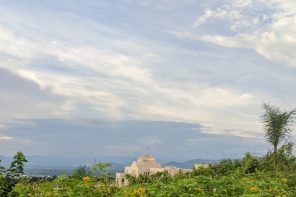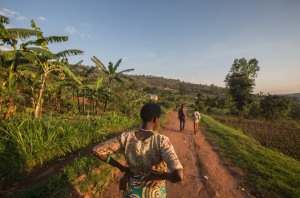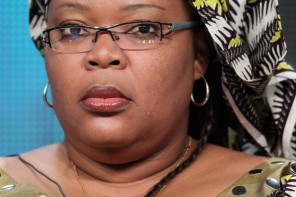The International Crisis Group just released a report recommending a new plan for dealing with the FDLR in Congo. It sounds a little like this:
A comprehensive strategy has to be developed, involving the Congo government, Rwanda, MONUC and the other international facilitators that joined in Nairobi declaration, including the African Union, the U.S. and the EU. Their political and operational inputs should be coordinated in a new FDLR disarmament mechanism that should plan both military measures and informational campaigns, as well as prepare the ground for judicial processes in the countries where FDLR political leaders have sought refuge and from which they spread the propaganda that is an important part of the hold they maintain over ordinary fighters. Without such additional efforts and new international momentum, the population of the Kivu will continue to bear the brunt of the FDLR’s presence and of the failed attempts to disarm them, and the fragile Congolese state will remain at risk.
That’s from the Executive Summary; the report is available only in French, which is curious as it directs some of its recommendations to the government of Rwanda, which went adamantly Anglophone last year. In any case, the recommendations are blessedly more specific than descriptive diplo-jargon. Highlights include asking Rwanda for a revised list of genocide suspects and FDLR members, calling off Kimia II, and giving FDLR deserters third-country resettlement options. Those are novel, though buried in the usual diplo-speak.
Here are a few other rec’s-for-thought. More on this later, I’m sure:
To the Government of Congo:
-
1. Suspend operation “Kimia II” and refrain from any further military offensive against the FDLR at this time, shifting priority to protecting the Kivu population against FDLR attacks and reprisals by establishing protected areas close to rebel-held territory and controlling major roads day and night.
That sounds mighty sensible, and certainly echoes what groups magnifying the voices of locals have said.
To MONUC:
-
4. Reinforce the training given FARDC brigades and assign military mentors to Congolese units.
5. Insert civilian specialists into the joint FARDC-MONUC military planning unit and facilitate the design of civil-military cooperation projects aimed at protecting civilians and building confidence between civilians and Congolese security forces.
6. Ensure the 3,000 reinforcements authorised by UN Security Council Resolution 1853 are speedily deployed in eastern Congo.
7. Reinforce the Disarmament, Demobilisation, Repatriation, Reintegration and Resettlement (DDRRR) section with specialists in intelligence and psychological operations, as well as legal experts who can develop cases for prosecution of crimes committed during the Congo’s violent conflicts.
Hmmmmm…and do all this with what resources? Whose manpower? I will have to stumble through the report later, but why should the UN bring in, through DDRRR, “legal experts” to “develop cases” for prosecution from Congo’s wars? Isn’t that what the ICC is doing? Or, better, the ABA legal clinics? Instead of having the UN drag in some new legal experts, why don’t we ask them to facilitate the work already going on? I’m totally just guessing here, but I bet these legal aid clinics could think of a few ways in which non-monetary cooperation from MONUC would be useful.



